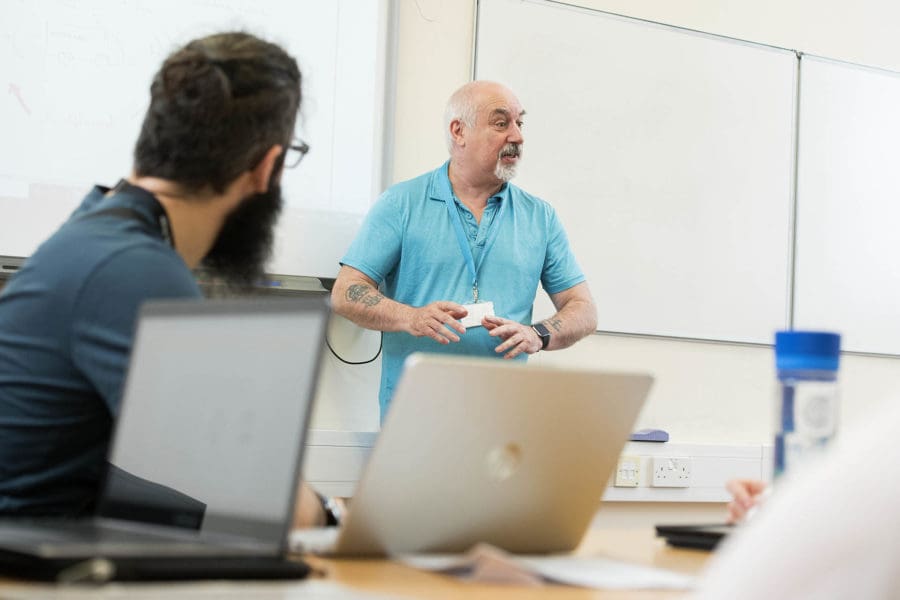Course overview
Computer Science A Level City of Bristol CollegeComputer Science is the study of processes that interact with data and that can be represented as data in the form of programs. It enables the use of algorithms to manipulate, store and communicate digital information.
You will learn Python and cover the fundamentals of programming, data structures, algorithms, and object-oriented programme design.
In addition, you will learn the theory of computer science. You will study the internal workings of computers, right down to how data is stored using binary, whether that be numbers, text, pictures or even music.
This course is an option within our Creative, Business and Law and Science A Level pathways.
- Creative Pathway course code: ALCREATIVE
- Business and Law Pathway course code: ALBUS&LAW
- Science Pathway course code: ALSCIENCE
Additional information
Who is this course for?
This course is for 16-18 year olds with an interest in computers, coding and programming. It’s not essential to have studied Computer Science previously, although it’s advisable to have had some practise of programming. The two-year course has a significant programming element and can be challenging for those who have no previous experience of programming, but you can discuss this further in your course meeting.
What you'll learn
As well as covering programming, the course explores best practice such as avoiding global variables, sensible variable naming, structured programming, good re-use of code through procedures and functions, and proper commenting of code.
It also covers higher-level concepts such as the social and legal impact of computers, and how to go about breaking down a big problem into individual programmable steps.
You must have at least a Grade 6 in Maths, because there are several topics that require the ability to reason logically and apply mathematical and logical processes to solutions.
Course entry requirements
A minimum of 5 GCSEs at Grade 4 or above, including both Maths and English.
Grade 6 in Maths.
You will provide a copy of your last school report and/or a reference from an employer or relevant professional, this will include attendance. This is to ensure that we can support you to be able to achieve well on the course.
Applicants with 85% or below attendance will have been deemed not to have met this criteria.
All applicants are given an opportunity to discuss any evidence-based mitigating circumstances that may have affected the reference/school report.
How is the course delivered and assessed?
The A Level Computer Science course consists of two exam papers, both worth 40%, plus non-exam assessment worth 20% which will typically be done over a period of about 3 months. The first exam is a programming test. This will test your ability to solve problems as it will test your technical knowledge of whoever programming language you have learned.
The seconds exam tests theory and will be in the form of a written exam. Questions are designed to test your knowledge of computer systems, how they are formed, the social and legal parts of computing, communication, networking and databases.
For the non-exam assessment you pick your own project which must have a significant programming element. You will create a program to solve a problem, such as writing a computer game, making a mobile phone application or undertaking an investigation into machine learning. There is no restriction on programming language used in the project, however, during lectures we learn Python. When writing coursework, you will not just be expected to produce working code but be able to write good, well-structured code.
Future career and study opportunities
After studying A Level Computer Science, you may progress to studying a similar subject at degree level or go straight into a career. Possible areas include robotics, artificial intelligence, machine learning, cloud computing, big data processing, networking, ethical hacking, computer game development, home automation or even teaching.
Additional costs
This course is free to anyone aged 16-18. There is no formal list of additional costs. However, if you are on a limited income, you may be eligible to receive help with these costs from our Learner Support Funding Bursary.
-
Career Coach
For guidance on which career path to take, to explore career options related to our courses, find out which careers are in demand, and then get the training you need.















